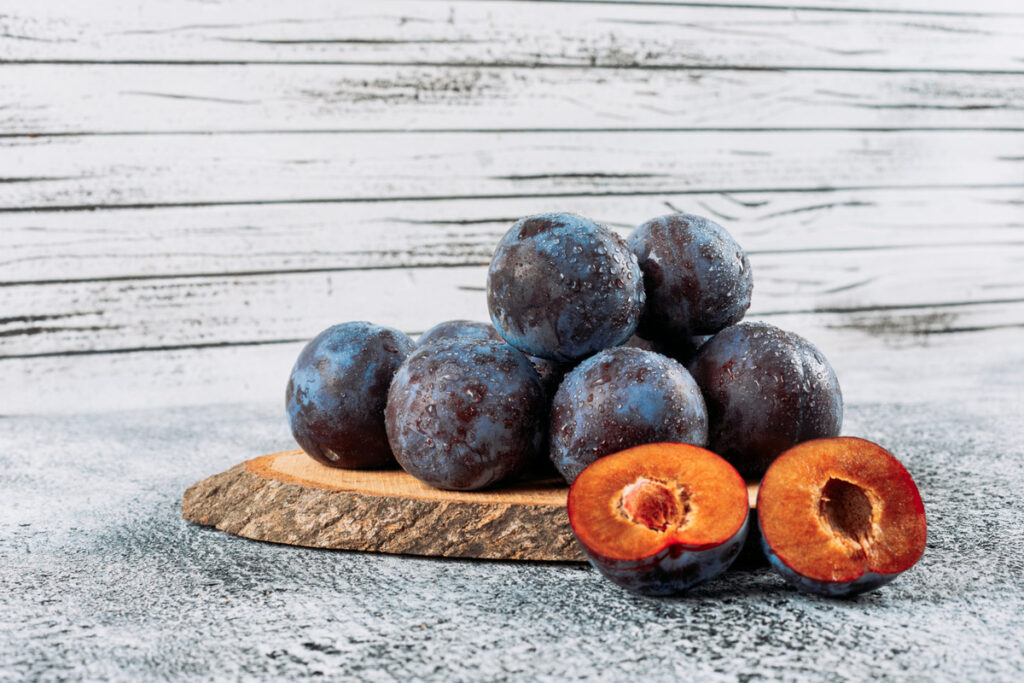Are plums good for diabetics?
Plums are a tasty and nutritious fruit that offer numerous health benefits, but when it comes to diabetes management, it’s essential to understand how they affect blood sugar levels.
With their low glycemic index and rich nutritional profile, plums can be a healthy option for people with diabetes, but moderation and portion control are key.
Are Plums Good for Diabetics?
Plums are a great fruit for people with diabetes due to their impressive nutritional profile.
They are high in fiber, which slows the absorption of sugar into the bloodstream, helping to prevent blood sugar spikes.
The fruit is also rich in vitamins and minerals, including vitamin C, potassium, and vitamin K, which support overall health.
Plums contain anthocyanins, which are powerful antioxidants known to have anti-inflammatory effects that can be beneficial for managing diabetes.
Moreover, plums have a relatively low glycemic index, which means they have less of an impact on blood sugar compared to many other fruits.
This makes plums a safe and healthy option for people looking to manage their blood sugar levels naturally.
How Plums Can Help Control Blood Sugar Levels
One of the key factors that make plums beneficial for diabetics is their high fiber content.
Fiber helps to slow down the digestion and absorption of carbohydrates, leading to a more gradual increase in blood sugar after eating.
This slower absorption helps prevent the rapid blood sugar spikes that can be harmful to people with diabetes.
The glycemic index (GI) of plums is relatively low, typically around 24, which is considered a low GI food.
Foods with a low GI release sugar into the bloodstream more slowly, which helps to maintain stable blood sugar levels.
Incorporating plums into a diabetic diet can provide a sweet yet healthy alternative to higher GI fruits like grapes or watermelon, making them an excellent choice for blood sugar management.
The Role of Antioxidants in Plums for Diabetes
Plums are rich in antioxidants, particularly vitamin C and anthocyanins, which have been shown to play a significant role in managing diabetes.
Vitamin C is known for its immune-boosting properties, but it also plays a role in reducing inflammation, which is often elevated in people with diabetes.
The antioxidants in plums help protect cells from oxidative stress, a condition where harmful free radicals damage cells and tissues, potentially leading to complications like nerve damage, which is common in diabetics.
Anthocyanins, the pigments that give plums their vibrant color, are particularly beneficial for controlling blood sugar and supporting cardiovascular health.
These antioxidants may help reduce inflammation in the body, improving insulin sensitivity and reducing the risk of diabetes-related complications like heart disease.
Are Plums Safe for Diabetics to Eat Regularly?
Plums are generally considered safe for diabetics to eat regularly, but portion control is important.
While plums have a low glycemic index, eating them in large quantities could still affect blood sugar levels.
A typical serving size of plums is about 1 to 2 medium-sized fruits, and this amount should not cause a significant rise in blood sugar.
It is essential to balance the consumption of plums with other foods in a diabetic meal plan to ensure overall blood sugar management.
As with all fruits, it’s important to be mindful of portion sizes and avoid consuming excessive amounts at once.
Eating plums in combination with a source of protein or healthy fats can further help to regulate blood sugar levels and provide a more balanced meal.
Other Health Benefits of Plums for Diabetics
Beyond their ability to help control blood sugar, plums offer a variety of other health benefits for people with diabetes.
The high fiber content in plums promotes digestive health by supporting regular bowel movements and preventing constipation.
Fiber also plays a role in lowering cholesterol levels, which is important for diabetics, as they are at higher risk for heart disease.
Plums are also rich in potassium, which helps to regulate blood pressure levels, another key concern for diabetics.
The antioxidants in plums help reduce inflammation, a common issue for people with diabetes that can lead to complications like joint pain or cardiovascular problems.
By incorporating plums into your diet, you can support heart health, improve digestion, and reduce inflammation, all of which contribute to better overall diabetes management.
How to Include Plums in Your Diabetic Diet
Plums can be enjoyed in a variety of ways, making them an easy addition to your diabetic meal plan.
Fresh plums can be eaten on their own or added to salads, yogurt, or smoothies for a burst of natural sweetness.
Dried plums, or prunes, are another excellent option and can be included in oatmeal, baked goods, or eaten as a snack.
When making smoothies, combine plums with other low-glycemic fruits like berries and add a source of protein, such as Greek yogurt or almond butter, to keep blood sugar levels stable.
Remember to practice portion control when eating plums, and consider pairing them with other foods high in protein and healthy fats for a balanced snack or meal.
GlycoFortin: A Natural Support for Blood Sugar Management
In addition to incorporating plums into your diet, you may want to consider GlycoFortin, a natural supplement designed to support healthy blood sugar levels.
GlycoFortin is made from a blend of natural ingredients, such as Gymnema Sylvestre, ginseng, and green tea extract, which work together to improve insulin sensitivity and reduce glucose absorption in the digestive tract.
The supplement helps to regulate blood sugar levels naturally, making it a great companion for those looking to manage diabetes in a holistic way.
With consistent use, GlycoFortin can support your efforts to maintain healthy glucose levels, complementing your diabetic-friendly diet that includes foods like plums.
If you’re looking to keep your blood sugar levels in check, adding plums to your diet can provide a healthy, nutrient-rich option.
For further support, consider incorporating GlycoFortin into your routine for natural blood sugar management.
Visit the official GlycoFortin website to learn more and take the first step toward better diabetes management.










One Response